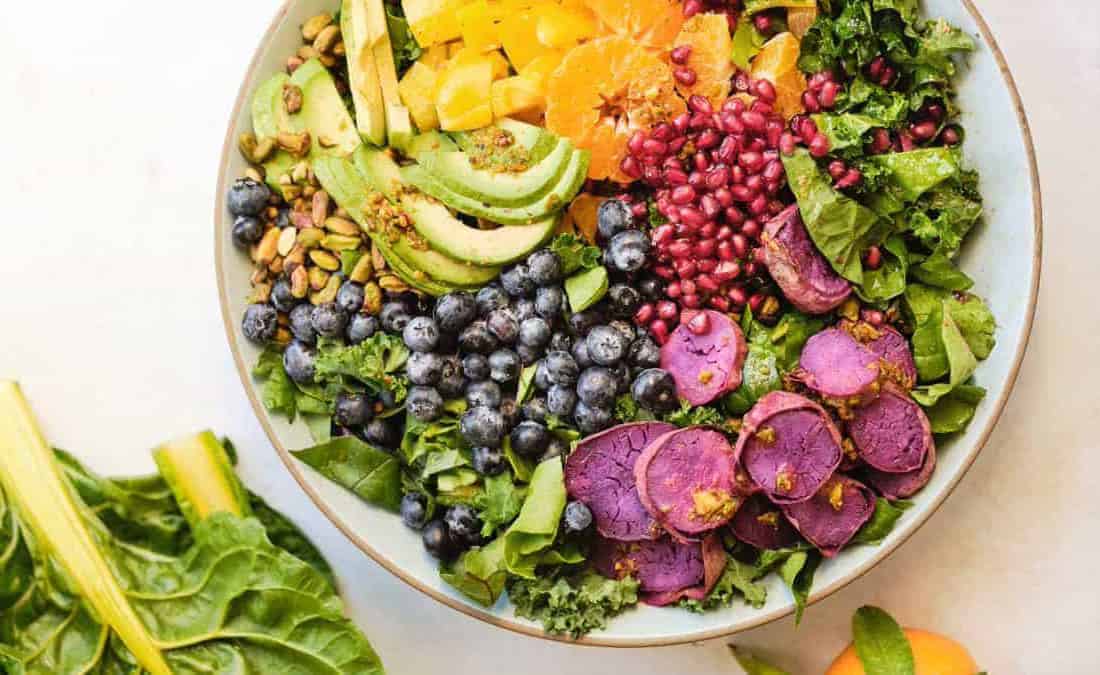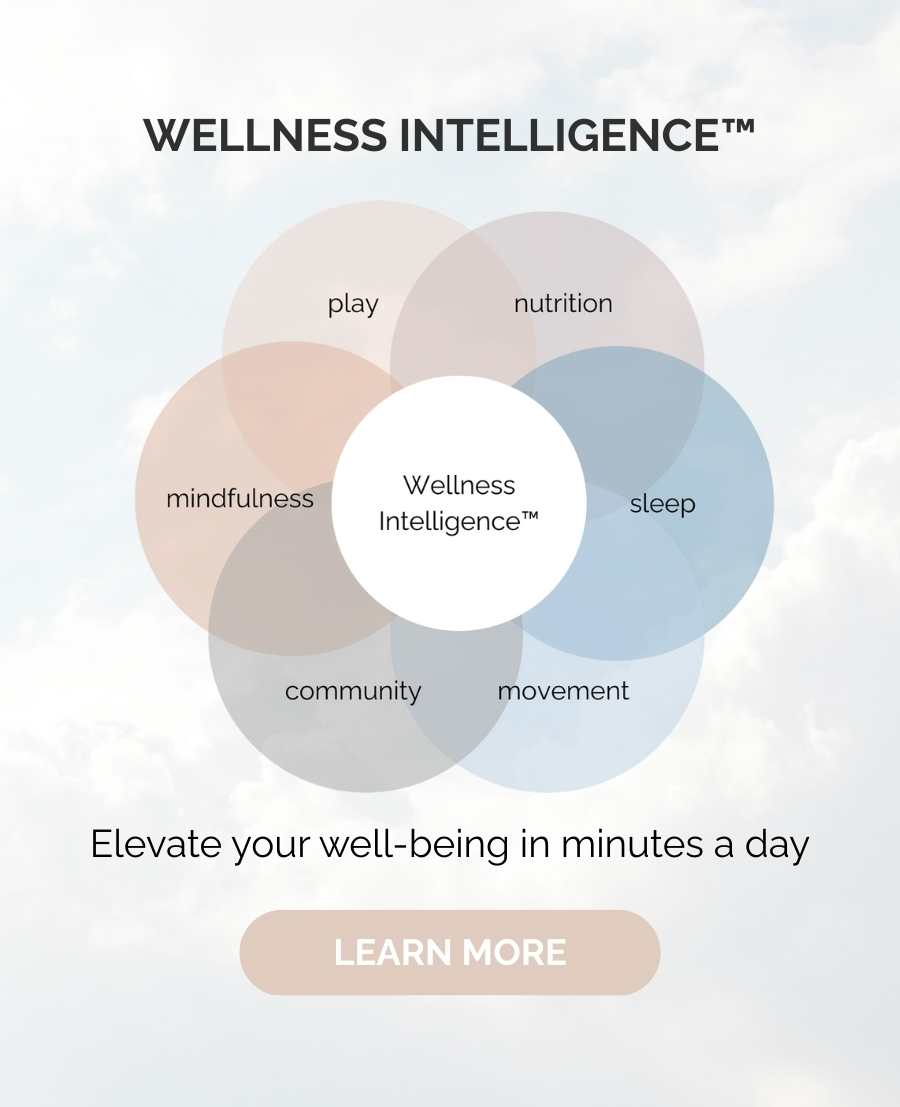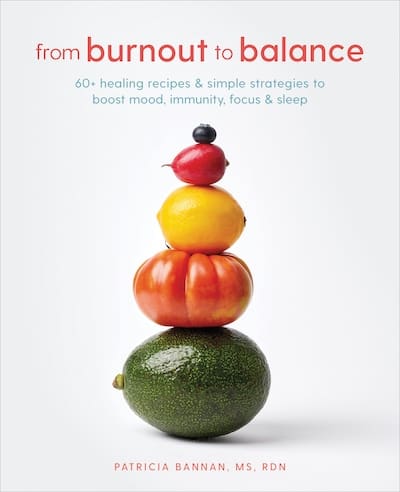This article originally appeared on Thrive Global.
Here are top foods that help you focus, and the science behind how certain nutrients and plant-based compounds can support brain health.
When you’re tired, stressed, or burnt out, a lack of focus or “brain fog” is one of the many challenges that make it difficult to simply get through your day. While getting quality sleep and staying active are key components for optimal brain health (or simply remembering where you put your keys… again!), research suggests that certain foods may improve your focus, memory, and concentration both now and as you age.
Are There Brain-Healthy Foods?
Overall, a diverse diet packed with plants will help maintain brain health as you age, and can be though of as “food for brain power.”
In a study published in 2020 in the Journal of Nutrition, Heath & Aging, researchers looked at the diets of nearly 8,600 people who were middle-aged or older. Those who ate more plants (fruits, vegetables, nuts, and pulses) were less likely to demonstrate cognitive decline. The study used a test of verbal fluency, where respondents listed as many words in a category as they could in a certain amount of time. More plants equaled a bigger vocabulary.
Bright Colored Fruits and Vegetables are Natural Brain Boosters

In addition to fruits and vegetables, flavonoids are found in cocoa powder, red wine, coffee, beans, and herbs like parsley and thyme. Flavonoids have also been shown to improve insulin and blood sugar responses and reduce inflammation, which synergistically supports brain health.
3 Foods that Help You Focus
- Berries – blueberries, strawberries, raspberries, and blackberries
- Fatty fish – salmon, trout, sardines, and mackerel
- Nuts -Walnuts, almonds, pecans, and pistachios
In addition to flavonoids, brain healthy foods contain an array of nutrients and plant-based compounds that support cognitive function. To get started, here are 3 foods to include on your brain-healthy grocery list today:
1. Berries & Brain Health
While small in size — blueberries, strawberries, raspberries, and blackberries pack a big punch when it comes to brain-boosting benefits. Researchers believe the antioxidants in these super fruits help reduce stress and inflammation, which contribute to cognitive impairment.
A large study in older women published in the Annals of Neurology showed that consumption of more blueberries and strawberries (at least 2 cups per week) slowed cognitive decline by up to 2 ½ years.
2. Fatty Fish & Brain Health
A specific type of omega-3 fatty acid, called docosahexaenoic acid (DHA), has been shown to support brain function and memory. Both algae and fatty fish (like salmon, trout, sardines, and mackerel) are rich in DHA.
A study published in the journal of Alzheimer’s and Dementia showed that DHA improved memory function in healthy aging adults (those 55 and older), providing a benefit roughly equivalent to having the learning and memory skills of someone three years younger.
Other brain healthy nutrients in fatty fish include vitamin D, magnesium, and protein. If you’re vegan or simply not a fan of fish, talk to your health care provider about omega-3 oil supplements from algae.
3. Nuts & Brain Health
Walnuts, almonds, pecans, and pistachios all provide an array of brain-boosting nutrients. In addition to polyphenols to support working memory, nuts provide protein for a healthy brain and nervous system, fiber for blood sugar stability, and magnesium for healthy cerebral blood flow.
A 2017 study by researchers at Loma Linda University Health showed that eating nuts on a regular basis strengthens brainwave frequencies associated with cognition, healing, learning, memory and other key brain functions.
When You Eat Affects Your Brain Health Too
While what you eat affects your brain health, it’s also important not to skip meals. Your brain needs glucose to function, so when you skip meals or go too long without eating, that fog and fuzziness you feel is your brain begging for fuel. Keep healthy snacks around—a balanced mix of protein, fiber, and healthy fats—to keep your blood-sugar levels steady and ward off hangry-induced distractions.
Brain healthy snacks can be as simple as hummus with bell pepper strips, canned tuna in olive oil with cucumber slices, or a trail mix of walnuts, dried berries, and dark chocolate chips.
Interested in reading more about how what you eat can impact your mental power? Here are other related articles:






